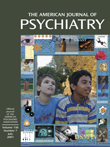Respect From Our Medical Colleagues
To the Editor: Cheers to Jack M. Gorman, M.D., for his Introspections piece (1). I work as a consultation psychiatrist in a general medical hospital in which I have regular interaction with medical and surgical colleagues, as he described. There are many cases in which a negative evaluation or a lack of clear diagnostic findings leads to the presumption that residual somatic symptoms are the result of psychiatric pathology. At such times, psychiatric consultation is often requested and may signify a certain respect from our medical colleagues because of the expectation that we can contribute to the care of the patient and effectively diagnose, treat, and ameliorate the patient’s suffering. In cases such as this, however, I often feel that I have been left to diagnose and treat presumed causative psychiatric symptoms by default. It is not surprising that I pause, scratch my head, bring my own diagnostic thinking to bear on the case, and do my best to reconsider the interplay between, and the differential diagnosis of, medical and psychiatric illness. This is not always an easy position to be in, because our medical colleagues can stand more confidently behind their quantitative findings borne of modern technology and refute the suggestion that the patient’s current woes are the result of interval worsening of the primary medical illness: the echocardiogram is unchanged; therefore, worsening congestive heart failure does not explain the anergic presentation.
One response is to examine the patient more closely for index psychiatric pathology, a potentially adaptive approach as it may lead to more accurate diagnosis but a potentially problematic approach as well in that it is based on a relative lack of data and thus may force a diagnosis where it does not belong (for “when all you have is a hammer…”). Another response is to return the volley and clearly describe the lack of findings on which to base a diagnosis of causative psychiatric disease. In this case, the patient is often left undiagnosed and uncertain, and physicians, patients, and their families are left unsatisfied. Somewhere in between or in addition to these two responses and far more helpful to patients, families, and involved physicians is the more internal response described by Dr. Gorman: consideration of the effect that the death and dying of a patient has on all of us. Thanks for a humanistic and psychodynamically informed take on this common clinical encounter.
1. Gorman JM: Respect from our medical colleagues: how much is too much? Am J Psychiatry 2000; 157:1572-1573Google Scholar



